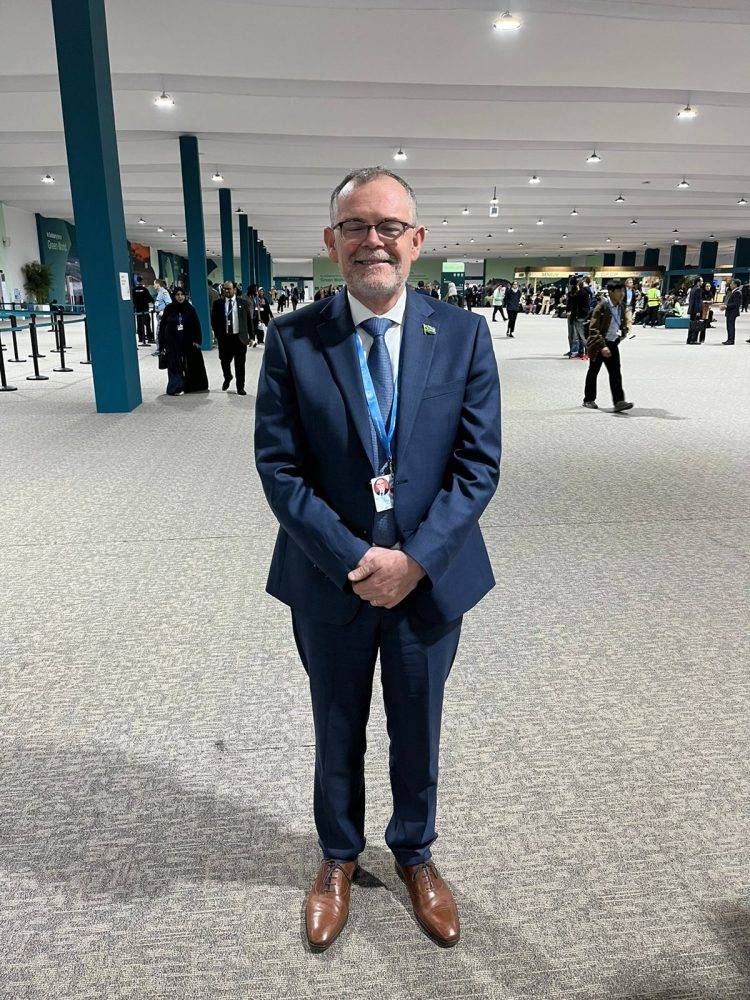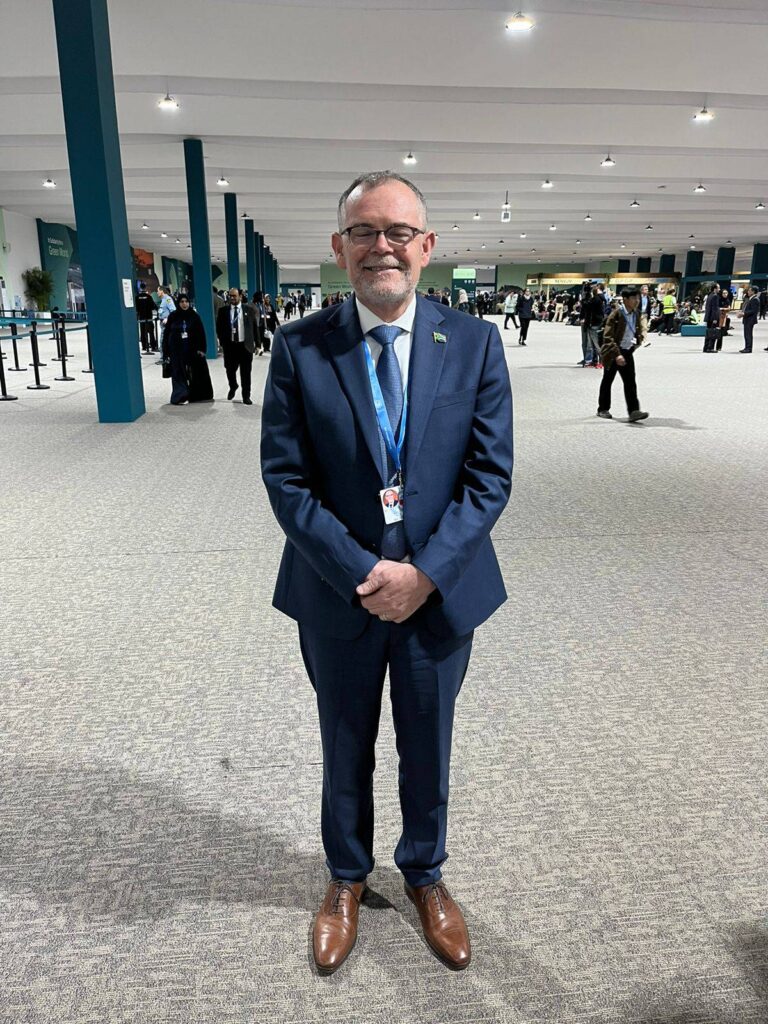
Dion George takes on resistance to mitigation and climate finance with days left before conference
With just days remaining in COP29 in Baku, Azerbaijan, South Africa's Minister of Forestry, Fisheries and Environment Dion George is making progress on difficult negotiations to mitigate the effects of climate change. remains optimistic.
George, who co-chairs the mitigation track with Norway's Tore Onshus Sandvik, faces the challenge of overcoming deep divisions between countries.
Mitigation measures focus on reducing greenhouse gas emissions to limit global warming to 1.5°C above pre-industrial levels.
But resistance to measures such as coal phasing out, deforestation controls and methane emissions targets has hampered negotiations.
Last year's COP28 ended without any significant gains on mitigation, but George is determined to break this pattern.
“I've been cutting through tough stances to find compromises,” George said. Alongside the conference.
“The message is clear: If we keep doing the same things, we will end up with the same failures. We want concrete results that will come out of Baku.”
George's approach was to challenge countries with strict positions, even if it upset delegates.
“I shook the tree a little bit. Some people were upset by what I said, but I didn't come here to smile and wave, I came here to accomplish something,” he said. said.
He added that success means reaching an agreement that includes a commitment to action. But breaking down the “extreme thinking” of certain countries has proven difficult.
Mr George said mitigation cannot be addressed without adequate climate finance.
Finance is also essential for adaptation, loss and damage, he said.
“Achieving the 1.5°C target requires funding. Ambition without means is just a piece of paper and will lead nowhere,” he said.
South Africa, along with the Africa Group, has been vocal about the need for grants and highly concessional financing, rather than loans that would further burden already indebted countries.
“We are paying R1 billion a day in interest. There is no room to borrow more. Climate finance must not add to our debt,” George said.
In July, South Africa signed the Climate Change Act, a legislative milestone in line with COP29 goals.
Mr. George also pointed to the country's efforts to advocate new models of climate finance that better serve developing economies.
He emphasized the need for a comprehensive review of the global financial structure as South Africa assumes the G20 Presidency next year. “The current system sends money from the south of the world to the north of the world. That needs to change.”
Although mitigation discussions are technically separate from COP29 financial flows, George emphasized the need to link the two.
“It is clear that mitigation and financing are closely linked, but not generally agreed upon. Recognizing this link would be a step forward,” he said.
Despite the challenges, George said he remains hopeful.
He and other African leaders have made it clear that progress requires concrete commitments, not empty promises.
He hopes by Thursday there will be agreement on the mitigation track to move beyond rhetoric and into real action.
“We need to get this done. Doing nothing is no longer an option,” George said.

